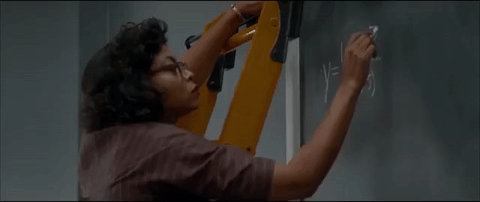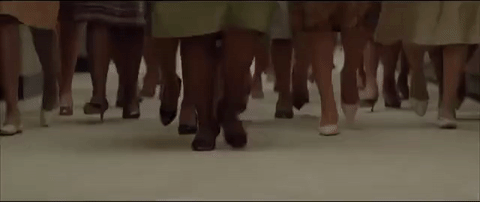Why EVERY White Parent Should Take Their Kids To 'Hidden Figures'
Bonus: 12 questions you MUST ask your kids after the movie.
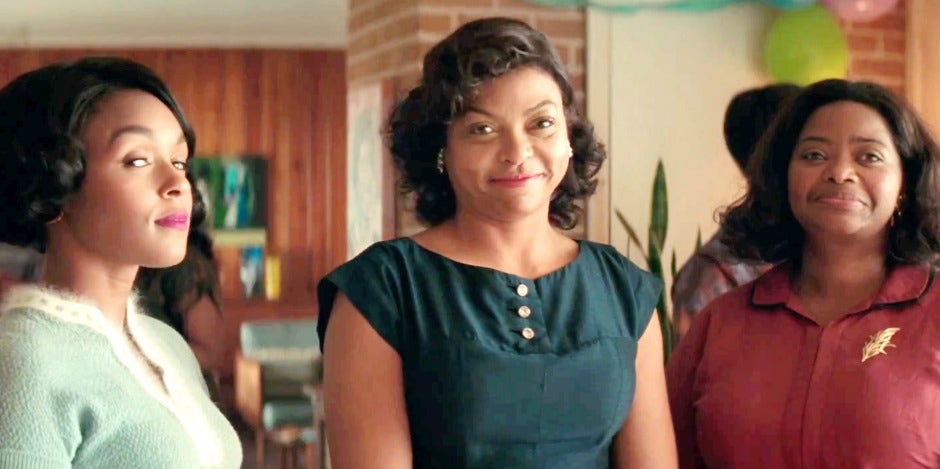 Fandango
Fandango I knew I was going to love Hidden Figures, the new movie about three real-life Black women scientists who were aeronautic pioneers at NASA in the segregated South.
I cried so many tears of joy, my eyes were sore as we left the theater.
Of course, I also cried tears of grief and frustration as I watched the treatment Katherine Johnson, Mary Jackson, and Dorothy Vaughan faced in their daily professional lives.
My sons, ages 9 and 12, loved it too. But it didn't strike them as deeply as it did me.
Sure, they have friends of many different races, and we talk about racism and Black Lives Matter.
They know the whole story of the killings of Philando Castile and Tamir Rice. They know the history of segregation and racism.
But they don't know racism. They are little white boys in suburban America.
If anyone could personalize a story for them, I knew it could be Taraji P. Hensen, Janelle Monae (who is amaaaazing), and Octavia Spencer.
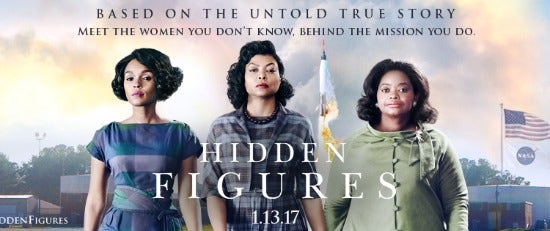
That's why I knew I had to take them to see this film.
They need to understand racism better. And they need to see more diverse images of heroes.
And this film does both. The story personalizes racism in a way that kids rarely get to see.
On top of that, these three women were brave — but didn't use their fists to become heroes like Thor or Iron Man.
They used their minds.
And their bravery was in facing real-life challenges. Things that really happened, things that would scare anyone.
These are just a few of the reasons Katherine, Dorothy and Mary are the heroes our kids NEED to see.
These three talented actresses are making history on their own, too. Their film booted Rogue One out of the top spot in its first weekend, and continued to dominate in its second.
What's more, this film stars three Black women, and it is truly their characters' story.
The white men (and woman) in the story are there, but the movie is, in no way, about them.
This is important and remarkable. And let's hope it's the wave of the future.
But you can't just show a movie like this to your white kids and walk away.
The post-movie conversations we have with our kids are crucial.
The way you talk about this movie takes something "fun" and makes it into a potentially life-changing experience.
In that spirit, I've come up with twelve post-movie thought questions to help your kids personalize the story of these three real-life heroes.
Hopefully you'll find them as useful and interesting as we did.
Because this movie is one your kids will probably remember forever, with heroes who weren't trying to be heroes ... they just wanted to do the jobs they dream of, without anyone telling them they aren't allowed.
Thought questions for Hidden Figures:
1. Who was the main hero of the movie?
(Watch out, your white sons will probably say John Glenn - not only because we are socialized to see white people, men in particular, as heroes, but because we also understand "astronaut" = very standard hero figure. This doesn't make your kid bad, but needs to be challenged.)
2. What made Katherine heroic in the movie?
3. What made Mary and Dorothy heroic?
4. What made John Glenn heroic?
5. Name 5 challenges Katherine had to face in the movie.
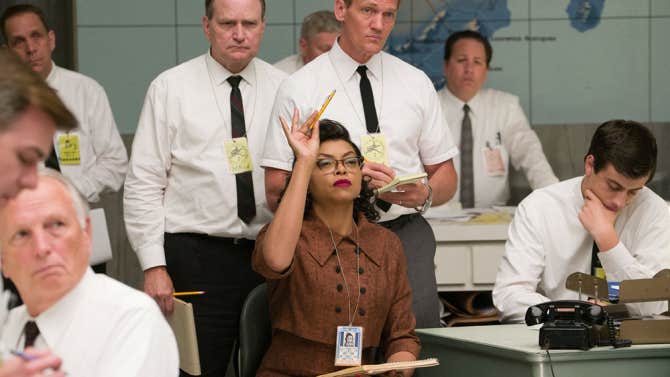
20th century fox
6. Name 2 challenges Mary and Dorothy had to face.
7. How did being a woman make it harder for Katherine to achieve her goals?
(For older kids, how did Katherine's gender, intersecting with her race, make it doubly hard to do her job?)
8. Name 3 examples of segregation Katherine, Mary and Dorothy faced.
(For younger kids, substitute "unfair treatment" for segregation, but explain the concept.)
9. In what ways would the ladies' lives have been different had they been treated equally their whole lives?
10. How is the world different today than it was then?
(Steer away from answers like "cell phones" and toward social issues).
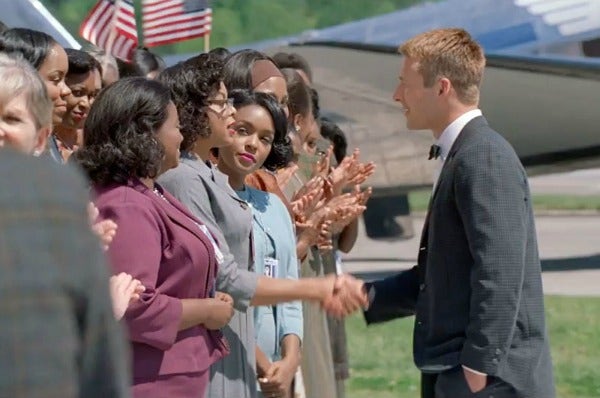
Nerdist
11. How does the world still have to change more in order to be equal for everyone, regardless of race?
12. How can YOU be like John Glenn, even as a kid, and try to advocate for and lift up others?
*These talking points are aimed at white kids, because my kids are white and this is the conversation I had with them, to help them contextualize the movie. Clearly parents who have children of color will have entirely different conversations, which I can't (and shouldn't) speak toward.

